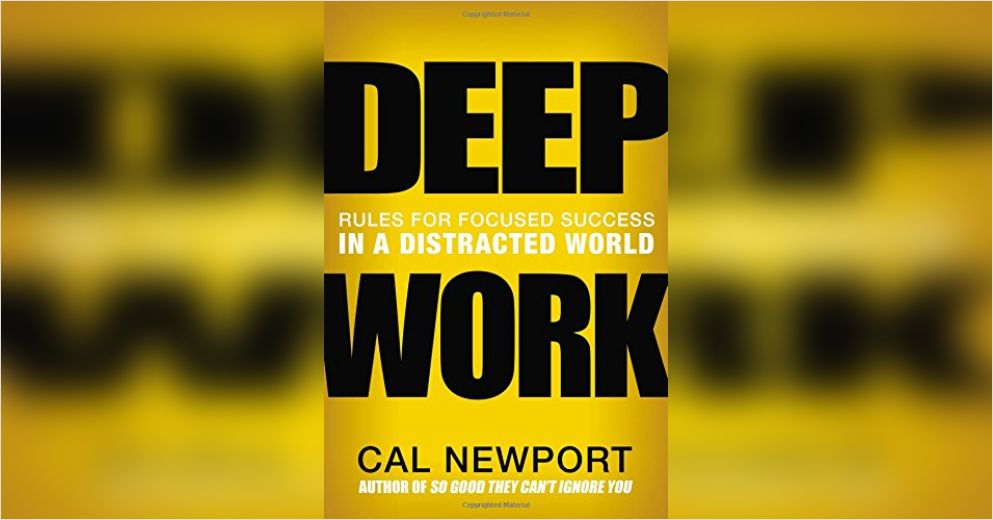Let’s start by stating the obvious: we live in a perpetually distracted world.
I noticed a while back that I had trouble even washing the dishes without putting something on. Music, at least, probably a podcast or even a YouTube video. It felt weird to simply do. That’s when I started to realize I was addicted to distraction. Distraction, not focus, was the norm in my life.
I’d been thinking about this for a while when I read Deep Work, which is more about how we work than it is about distraction and the digital world (which Newport’s more recent book is about). But you can’t talk about focus and deliberate concentration without scrutinizing our world’s norms around tech and social media.
Newport criticizes these norms that, he points out, are often accepted just because they’re there. It’s not that they’re helpful (though they can be) or better. They’re just there, so we use them. And it’s not just the technology – it’s office and workspaces too. The style is often “open concept” so that we can have as much “connection” and stimulation (i.e. distraction) as possible. This is a bad recipe for “knowledge workers” and others who need focus to produce their best work and compete in a tough economy.
Depth: against the grain but more economical
If it’s not becoming clear, Newport’s concept of “deep work” goes against this grain. He himself encourages readers to find the spaces and practices conducive to concentration and limiting distraction. He gives clear suggestions and principles and uses some psychological concepts in doing so. It’s very pragmatic, and like any good productivity book, gives clear action steps. I already feel like my life is changing.
That said, the concept of deep work itself is still somewhat ambiguous. Newport is not a psychologist by trade, and even though his use of psychological concepts and research is helpful, I could have used more fleshing out of just what is happening when I go into deep concentration. But maybe that’s the psych nerd in me.
Nonetheless, the deep work concept has enough substance and clarity that you know what he’s talking about. Even if he hadn’t given me the practical rules and tips, I’d have a general sense of what to do in my life to improve my knowledge work.
If you’re not interested in knowledge work in any way, this book won’t do much for you. The primary audience will be those who have to leverage brainpower in their day to day, whether at work or home. As someone who regularly writes and creates mentor curricula, it was right up my alley.
Newport also does a great job helping you understand the benefits of depth; from economic to psychological. Perhaps the most interesting point he makes is that going deep actually improves the sense of meaning in someone’s work. If you’ve ever experienced a few satisfying hours of productive work free of any kind of interruption, you might know what he’s talking about.
I’m not surprised that Newport’s new book has built off of his extended social media criticisms; his cultural commentary here will really make you reconsider your habits and what you take for granted. But the central concept and pragmatism are compelling enough to make the book very valuable.
If Deep Work isn’t on your productivity genre list, it should be. It’s proving to be a life-changer for me.






